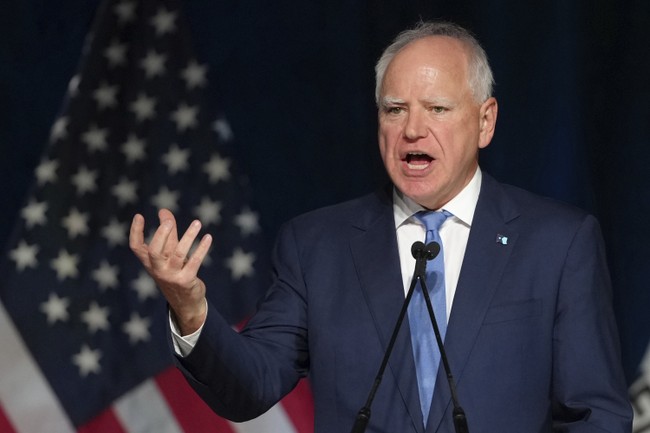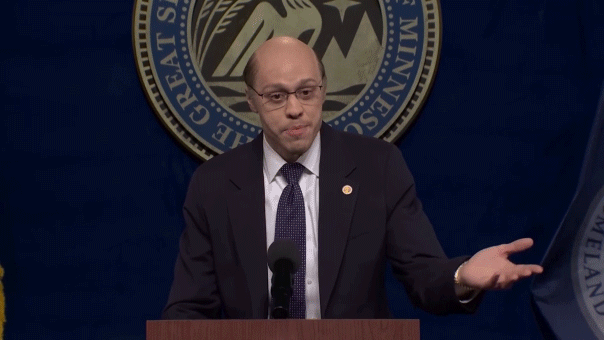Senate Republicans are moving to draft a proposal that would expedite the confirmation process for the 145 stalled Trump nominees awaiting floor consideration.
Senate Majority Whip John Barrasso said Wednesday that Republicans are aiming to vote on changing Senate rules to expeditiously confirm dozens of the president’s picks by the end of next week before the upper chamber adjourns for the Rosh Hashanah recess on Sept. 22. The measure — while still being fleshed out — is likely to engender resistance from Senate Democratic leader Chuck Schumer and could force Republicans to change Senate rules unilaterally. (RELATED: No. 2 Senate Republican Backs Rules Changes To Break Dems’ Confirmation Blockade)
“We’re working up the proposal right now, going to talk to our members and make sure that we have the votes ready to go to make sure the president has his team in place,” Barrasso told reporters Wednesday. “There is significant support across the entire conference to making sure that the president gets the team in place to get America back on track.”
Though Senate GOP leadership has yet to get behind a specific solution, Barrasso floated a rules change that would allow nominees who advance out of the same committee to be confirmed en bloc by voice vote or unanimous consent on the Senate floor.
The Wyoming Republican said the proposal would expedite the confirmation process for the hundreds of lower-level executive branch nominees who require Senate confirmation to serve in their postings. It is unclear if Senate Republicans will also seek to speed up the confirmations of district court nominees who have been subject to Democrats’ stalling tactics.
Senate Democrats have sought to delay the confirmation process for nearly all of Trump’s executive branch and judicial nominees. Trump, in his second term, is the first president on record to not have a single civilian nominee confirmed by voice vote or unanimous consent at this point in his presidency.
Schumer has boasted about his caucus’ delay tactics, arguing “historically bad nominees deserve historic levels of scrutiny.”
“Damn straight we’re blocking these nominees,” Schumer told “The Parnas Perspective” podcast on Aug. 14. “We can use every tool in the toolbox to delay them, and we have.”
WASHINGTON, DC – JULY 29: Senate Minority Leader Charles Schumer (D-NY) (R) is joined by Sen. Patty Murray (D-WA) and Sen. Amy Klobuchar (D-MN) while talking to reporters following the weekly Democratic Senate policy luncheon at the U.S. Capitol on July 29, 2025 in Washington, DC. (Photo by Chip Somodevilla/Getty Images)
Barrasso has excoriated Democrats for forcing Senate GOP leadership to burn through multiple hours of floor time to process each nominee individually, but declining to state specific concerns about the president’s picks.
“In fact, of the Democrats who filibustered all 109 sub-cabinet nominees, the average Democrat debate was two minutes,” Barrasso said on the Senate floor Wednesday. “Eighty-one nominees had zero Democrat debate. Only seven of them went for more than ten minutes.”
“Two hundred eighteen hours of debate time spent on the Senate Floor – ignored by the Democrats, wasted time, couldn’t do legislation, couldn’t do other things because of this historic obstruction by the Democrats of what the American people voted for,” Barrasso added.
Retiring Republican North Carolina Sen. Thom Tillis, who has declined to support several of Trump’s nominees, told reporters Wednesday that he would be open to Republicans changing Senate rules unilaterally to expedite the confirmation process if Democrats refuse to consider solutions.
“If you’re now no longer for something that you all agree would fix the problem that we have and let us get back to regular order, and now you’re against — it looks you’re not negotiating in good faith,” Tillis said.
Andi Shae Napier contributed to this report.
All content created by the Daily Caller News Foundation, an independent and nonpartisan newswire service, is available without charge to any legitimate news publisher that can provide a large audience. All republished articles must include our logo, our reporter’s byline and their DCNF affiliation. For any questions about our guidelines or partnering with us, please contact [email protected].
Read the full article here







![Trump Takes the Leash Off Federal Law Enforcement, Anti-ICE Radicals Put On Notice [WATCH] Trump Takes the Leash Off Federal Law Enforcement, Anti-ICE Radicals Put On Notice [WATCH]](https://www.rvmnews.com/wp-content/uploads/2026/02/2026.02.01-04.47-rvmnews-697f838546447.jpg)




![Trump’s Admin Cut Down Child Trafficking Economy, 145,000 of Biden’s Lost Kids Now Found [WATCH] Trump’s Admin Cut Down Child Trafficking Economy, 145,000 of Biden’s Lost Kids Now Found [WATCH]](https://www.rvmnews.com/wp-content/uploads/2024/11/2024.11.26-09.49-rvmnews-6746427ee8bde.jpg)